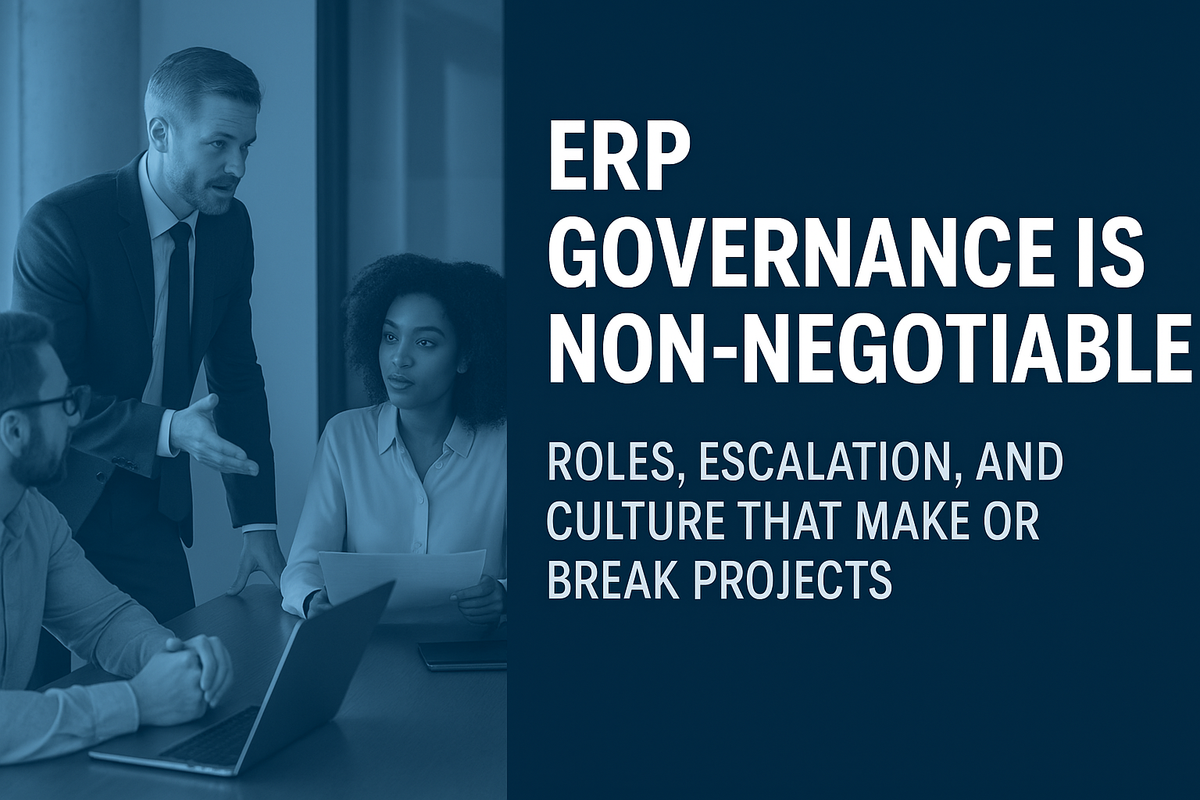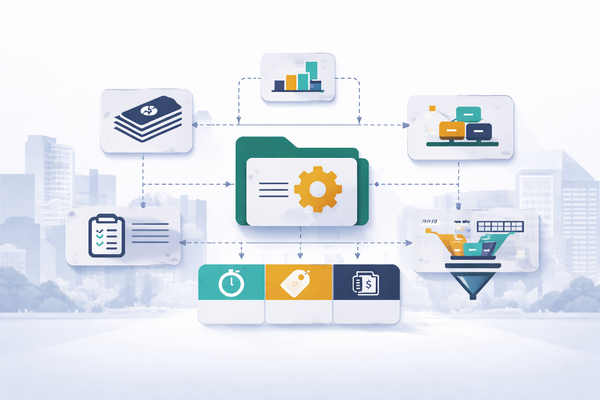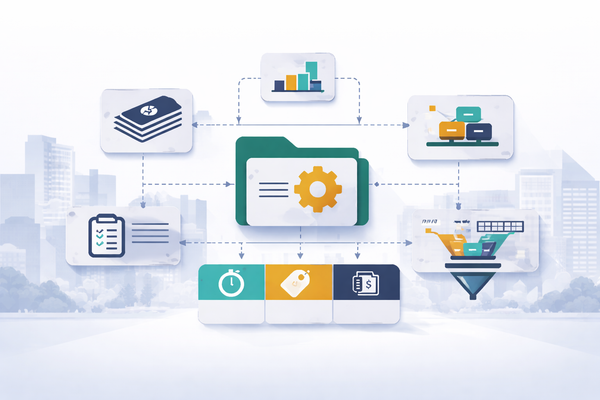ERP Governance Is Non-Negotiable: Roles, Escalation, and Culture That Make or Break Projects

Most ERP projects don’t fail because of technology.
They fail because governance is treated as a formality rather than an operating system.
Roles exist on paper. Escalations are unclear. Decisions drift. Accountability softens.
From hands-on experience in large-scale ERP and Dynamics 365 transformations, weak governance is one of the most consistent predictors of failure — not at go-live, but in the months that follow.
1. The Real Cost of Weak Governance
When governance is weak, projects bleed time, money, and morale.
- Bottlenecks pile up
- Blind spots multiply
- Teams lose accountability
In one project, poor governance led to a full year delay — costing millions and crushing team morale.
Weak governance is not a secondary issue — it is one of the structural reasons why so many Dynamics 365 Finance implementations fail after go-live.
2. Ownership Must Be Explicit — or It Will Be Replaced
- Process Owners → must own their domains (finance, procurement, reporting).
- IT & Consultants → support but do not own decisions.
When IT/consultants take over, users lose control, decisions disconnect from business reality, and adoption collapses.
3. Decision Quality Matters More Than Decision Speed
Too often, executives focus on cost instead of value. The result: decisions that look good on paper but fail in practice.
- Bad example: ignoring user feedback to save money.
- Better approach: gather input from key players before decisions, balance cost with long-term deliverables.
4. Escalation Paths Prevent Chaos
Governance isn’t just roles — it’s also how issues move up the chain.
- Problems should be raised in daily/weekly status meetings with key players.
- If unresolved, the Project Manager escalates to the right owner, or directly to the Steering Committee.
Without escalation, issues linger and quietly derail timelines.
5. Governance Fails When Consultants Replace Ownership
Relying on consultants for testing, training, and data migration creates dependency.
- Knowledge stays with consultants, not the business.
- Processes remain inefficient.
- Adoption never takes root.
Consultants should support, not replace, business ownership of critical activities.
6. End Users Must Have a Voice
In one project, a module was de-scoped without consulting end users. The result: chaos in daily operations, confusion about workarounds, and lost trust in the project team.
ERP governance must include the voice of the people who will use the system daily. Otherwise, resistance and rework are inevitable.
7. Culture Makes Governance Work
Structures alone don’t guarantee success. The culture of governance matters:
- Trust and partnership → projects move forward.
- Rivalry and blame → projects stall.
When stakeholders see each other as partners, governance creates alignment. When they see rivals, governance becomes gridlock.
Governance is not about control.
It is about making decisions early, enforcing them consistently, and protecting the organization from ambiguity.
Conclusion:
ERP governance isn’t about adding bureaucracy. It’s about clarity, accountability, and trust. Define roles, set escalation paths, secure sign-offs, and foster partnership. Without it, you risk costly delays, failed adoption, and wasted investment.
🔗 Continue Reading on FitGap Finance
- https://www.fitgapfinance.com/why-dynamics-365-finance-implementations-fail/
- https://www.fitgapfinance.com/erp-transformation-practical-guide/
👉 Version française disponible ici:
https://www.fitgapfinance.com/gouvernance-erp-roles-escalades-culture-d365/
© FitGap Finance



